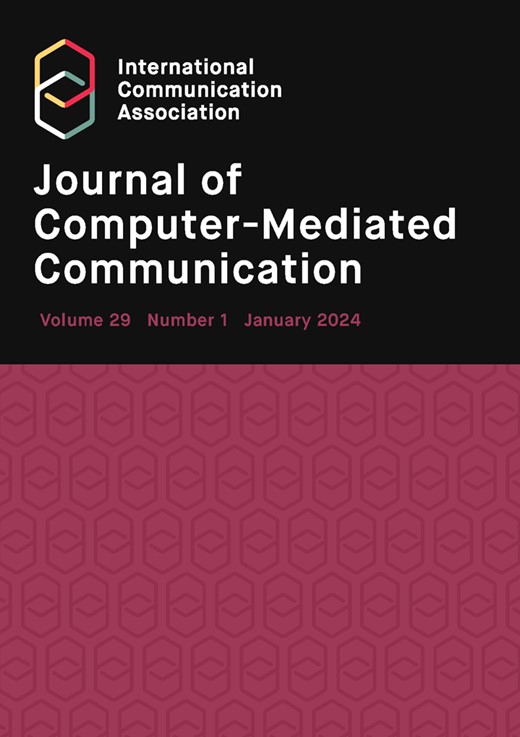Surveillance and the future of work: exploring employees’ attitudes toward monitoring in a post-COVID workplace
IF 5.7
1区 文学
Q1 COMMUNICATION
引用次数: 0
Abstract
The future of work increasingly focuses on the collection and analysis of worker data to monitor communication, ensure productivity, reduce security threats, and assist in decision-making. The COVID-19 pandemic increased employer reliance on these technologies; however, the blurring of home and work boundaries meant these monitoring tools might also surveil private spaces. To explore workers’ attitudes toward increased monitoring practices, we present findings from a factorial vignette survey of 645 U.S. adults who worked from home during the early months of the pandemic. Using the theory of privacy as contextual integrity to guide the survey design and analysis, we unpack the types of workplace surveillance practices that violate privacy norms and consider attitudinal differences between male and female workers. Our findings highlight that the acceptability of workplace surveillance practices is highly contextual, and that reductions in privacy and autonomy at work may further exacerbate power imbalances, especially for vulnerable employees.监控与工作的未来:探索员工在后covid工作场所对监控的态度
未来的工作越来越侧重于收集和分析员工数据,以监控通信、确保生产力、减少安全威胁并协助决策。COVID-19大流行增加了雇主对这些技术的依赖;然而,家庭和工作界限的模糊意味着这些监控工具也可能监控私人空间。为了探讨工人对加强监测措施的态度,我们提出了对645名在大流行最初几个月在家工作的美国成年人进行的因子小调查的结果。利用隐私作为情境完整性的理论来指导调查设计和分析,我们揭示了违反隐私规范的工作场所监控行为的类型,并考虑了男性和女性员工之间的态度差异。我们的研究结果强调,工作场所监控行为的可接受性是高度相关的,工作中隐私和自主权的减少可能会进一步加剧权力失衡,尤其是对弱势员工而言。
本文章由计算机程序翻译,如有差异,请以英文原文为准。
求助全文
约1分钟内获得全文
求助全文
来源期刊
CiteScore
9.60
自引率
2.80%
发文量
26
期刊介绍:
The Journal of Computer-Mediated Communication (JCMC) has been a longstanding contributor to the field of computer-mediated communication research. Since its inception in 1995, it has been a pioneer in web-based, peer-reviewed scholarly publications. JCMC encourages interdisciplinary research, welcoming contributions from various disciplines, such as communication, business, education, political science, sociology, psychology, media studies, and information science. The journal's commitment to open access and high-quality standards has solidified its status as a reputable source for scholars exploring the dynamics of communication in the digital age.

 求助内容:
求助内容: 应助结果提醒方式:
应助结果提醒方式:


